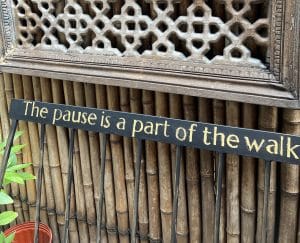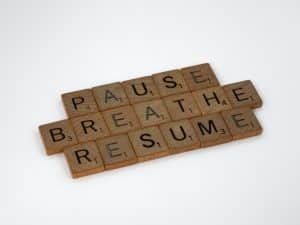
Have you ever done one of those tests that are designed to help you figure out what you’re good at? They’re used a lot in career planning, and in my (coaching) world, and most of them give you this really nice, organized snapshot at the end with your “strengths” and “weaknesses,” as well as sometimes options you might want to consider for what to do with yourself moving forward. Then there are those versions you find in magazines, the ones that tell you what kind of friend you are, or who you should date, or what kind of vacation you should take, and so on. It’s so compelling, this idea that some simple input can create such insightful output, and help us understand ourselves better. We like to know what makes us special, and also, where that “special-ness” stops, so we can stop there, too.
As human beings, we love information. Even more, we love information about ourselves. For as much time as we spend with ourselves, it’s amazing how much value we place on external assessments for self-understanding. But, as Alan Watts said, “Trying to define yourself is like trying to bite your own teeth.” Sometimes, an outside perspective can be helpful in revealing what we can’t see so well for ourselves. It can give us clarity during times of indecisiveness and grounding amidst uncertainty.
The other thing these assessments do is tell us what we aren’t so good at, which we usually take as an excuse to back away from challenges in that area. At the very least, we lower our expectations for ourselves. We feel safe knowing where our limits are, and believing that any failures or disappointments we experience may be attributable to them, and therefore, to a certain extent, are out of our control.
Limits are really just a map of the current state, though. We reinforce them through our own behaviors when we mistake them for a map of the future as well.
We take in all of this information we gather about ourselves and sit comfortably with it. We call it self-awareness, wisdom, even truth. We let it protect us from the anxiety of not knowing what’s coming next, and use it help us predict future outcomes. Of course, in turn, we are using it to create them.
There is less uncertainty in a world where we know our boundaries, and where we think we can choose the spaces where we are most likely to be successful. There is less anxiety about outcomes when we think we are playing to our strengths. There is less intensity inside our comfort zones. There is less discomfort, period.
Aha, now you see where I’m going with this.
Have you ever had a really tough decision to make, only to find that your efforts to make an informed one backfired into a sense of total information overload? It is possible to have too much of a good thing, especially if it means ignoring your internal sense of what’s true, right and appropriate for you. It is possible to gather so much information that your results start to cancel each other out, leaving you with the same role you started with: tiebreaker. Decisionmaker. CEO of yourself. In other words, right back where you started. You looked outside of yourself for the answer, and eventually, all signs pointed right back to you.
External perspectives can be valuable, especially for how they can show us how our thoughts and actions may be framed by internal patterns of belief about ourselves and the world. They can even help us map out the path ahead, as we determine which steps will take us where we want to go. They become less helpful when they give us an excuse to place limits on that path, however, or serve as a crutch to lean on for mitigating the discomfort that is inherent in growth.
Gather insights. Seek knowledge. Open your mind to better understand. And always remember that none of that information is static. Change is always possible. If you are lucky, it will be your only constant.




4 thoughts on “Restricted area”
Pingback: No-Fail Friday: Couldn’t possibly | MindfulMBA
Pingback: No-Fail Friday: Inner circle | MindfulMBA
Pingback: Team spirit | MindfulMBA
Pingback: Anchors away | MindfulMBA